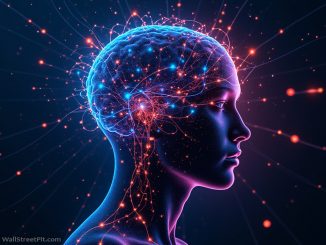Video source: @tsarnick
Mustafa Suleyman says AI will nail memory in 2025 and combining this with voice interaction will unlock new levels of creativity in what amounts to AI being our “second brain” pic.twitter.com/5QwcxOOI8n
— Tsarathustra (@tsarnick) November 3, 2024
At the October 2024 Masters of Scale Summit, Mustafa Suleyman, CEO of Microsoft AI, shared a visionary outlook on the future of artificial intelligence (AI) with host Reid Hoffman. Suleyman predicted that by 2025, AI would master memory capabilities, a development he believes will synergize with advanced voice interaction to essentially serve as a “second brain” for users, enhancing creativity and personal productivity.
Suleyman explained that the evolution of voice interaction with AI models allows for a more natural exchange of ideas. He highlighted how speaking to AI in full sentences, with the ability to correct and expand on thoughts in real-time, facilitates a conversational flow that was previously unattainable in digital interactions. This ease of communication, he argued, would encourage users to explore and express a broader range of creative thoughts, significantly expanding the potential uses of AI as a creative companion.
A pivotal aspect of this advancement, according to Suleyman, is the AI’s ability to remember. He confidently stated, “We’re going to nail memory. I’m really confident 2025, memory is done. Permanent memory.” He drew parallels between the current capabilities of AI in retrieving information from the web with high accuracy and the future where this memory would extend to personal data. This includes personal documents, email, and calendar information, creating a comprehensive personal knowledge graph.
This memory feature, combined with real-time updates (like knowing events from 15 minutes ago), would allow AI systems to maintain continuity in conversations over time. Suleyman emphasized the frustration of starting anew with AI in each session and how memory would change this dynamic, allowing for ongoing, evolving discussions. He illustrated this with an example of referencing a past conversation: “What was that thing I said 3 weeks ago?”, underscoring how this capability would simulate having an extension of one’s mind, or a “second brain.”
The integration of memory with advanced voice interfaces, as Suleyman envisions, would not only lower the barriers to creative expression but also ensure that these creative explorations could be revisited and built upon, fostering a deeper, more intuitive human-AI interaction.
This development signifies a shift towards AI systems that are not just tools for computation or information retrieval but partners in creativity and personal memory management. Suleyman’s insights at the summit illuminate a future where AI, through its ability to remember and engage in nuanced dialogue, could become an integral part of how humans think, create, and remember.





Leave a Reply